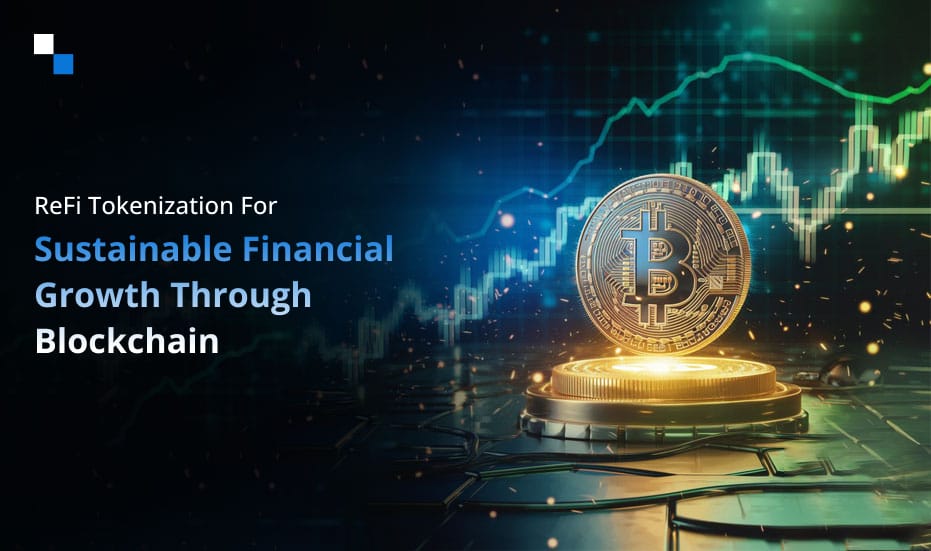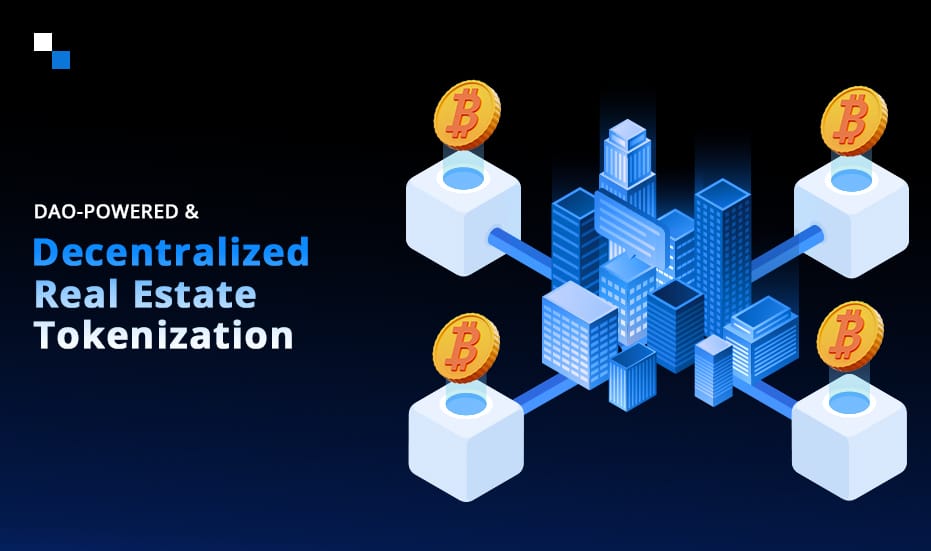In the evolving landscape of blockchain technology, one of the most promising advancements is the concept of Tokenization as a Service (TPaaS). TPaaS is setting the stage for the future of real-world asset tokenization, where tangible and intangible assets can be represented digitally on blockchain networks. This shift is bringing transformative changes to industries, opening new avenues for investment, liquidity, and decentralization. But how exactly is TPaaS enabling this revolution? Let’s take a closer look.
What is TPaaS?
Tokenization as a Service (TPaaS) is a comprehensive, cloud-based service that allows businesses to convert physical or intangible assets into digital tokens that can be traded, tracked, and transferred on a blockchain. TPaaS providers offer a platform where companies, financial institutions, and asset owners can tokenize assets, whether it’s real estate, art, commodities, or even intellectual property.
Through TPaaS, the complex and costly process of asset tokenization becomes accessible to a broader audience, including smaller enterprises and individuals who would otherwise lack the resources to engage with blockchain technology.
The Happenings in the TPaaS World
The TPaaS ecosystem is rapidly expanding, as more companies and industries recognize the benefits of tokenizing their assets. Several developments in the TPaaS world are driving this innovation forward:
- Growing Interest from Financial Institutions: Traditional financial institutions have started to explore blockchain’s potential, and TPaaS is leading this charge. These institutions are increasingly seeing the value in offering tokenization services to their clients. By partnering with TPaaS providers, financial organizations can offer secure, efficient tokenization solutions to asset owners, particularly in industries like real estate, art, and luxury goods.
- Integration with Decentralized Finance (DeFi): TPaaS is also bridging the gap between traditional finance and decentralized finance. As DeFi protocols continue to expand, the ability to tokenize assets seamlessly and leverage them within decentralized exchanges and lending platforms is becoming a reality. TPaaS platforms are integrating with DeFi applications, allowing tokenized assets to be used as collateral or traded freely across various decentralized networks.
- Increasing Regulatory Clarity: With the rise of blockchain-based solutions, regulatory frameworks around tokenization are becoming clearer. TPaaS providers are working closely with regulatory bodies to ensure their services comply with the evolving laws governing tokenized assets. This regulatory clarity is helping to instill confidence in the market, attracting more participants to the tokenization space.
- Interoperability Between Blockchains: Another critical development in TPaaS is the increasing focus on interoperability. TPaaS platforms are designed to operate across multiple blockchains, enabling the seamless transfer and trade of tokenized assets between different blockchain ecosystems. This opens the door for greater liquidity and cross-chain collaboration.
Key Features of a TPaaS Platform
- Asset Digitization: TPaaS platforms facilitate the conversion of real-world assets into digital tokens, representing fractional ownership or specific rights.
- Smart Contract Development: Customizable smart contracts can be created to automate various aspects of asset management, such as ownership transfer, rental payments, and royalty distribution.
- Token Issuance and Management: Efficient issuance and distribution of tokens to investors, along with secure token storage and management.
- Marketplaces and Exchanges: TPaaS platforms provide marketplaces for trading tokenized assets, connecting buyers and sellers.
- Regulatory Compliance: Adherence to relevant regulations, such as securities laws and tax regulations, to ensure legal and compliant operations.
- Security and Risk Management: Robust security measures, including encryption, access controls, and regular security audits, to protect investor assets and sensitive data.
- Integration with Traditional Financial Systems: Seamless integration with traditional financial systems to facilitate transactions and settlements.
Benefits of TPaaS
- Enhanced Liquidity: Tokenization can improve liquidity for illiquid assets by enabling fractional ownership and secondary market trading.
- Increased Transparency: Blockchain technology ensures transparency in asset ownership, transaction history, and provenance.
- Reduced Costs: Smart contracts can automate many processes, reducing administrative costs and fees.
- Global Access: TPaaS platforms can facilitate global transactions, enabling investors from around the world to participate in tokenized asset markets.
- Innovation: TPaaS providers can enable the creation of innovative financial products and services, such as tokenized securities, derivatives, and structured products.
Real-World Applications of TPaaS
1. Real Estate Tokenization
- Fractional Ownership: TPaaS platforms can enable fractional ownership of real estate, making it accessible to a wider range of investors.
- Rental Income Tokenization: Tokenizing rental income from properties can provide investors with a steady stream of passive income.
- Real Estate Development Projects: TPaaS can facilitate crowdfunding for real estate development projects, attracting a diverse pool of investors.
- Commercial Real Estate: Tokenizing commercial real estate can improve liquidity and facilitate transactions.
2. Art and Collectibles Tokenization
- Digital Art NFTs: TPaaS platforms can enable the creation and trading of NFTs representing digital art, music, and other digital collectibles.
- Physical Asset Tokenization: Tokenizing physical assets like paintings, sculptures, and rare collectibles can enhance liquidity and facilitate fractional ownership.
3. Commodity Tokenization
- Precious Metals: Tokenizing precious metals like gold and silver can provide a secure and transparent way to invest in these assets.
- Agricultural Commodities: Tokenizing agricultural commodities can improve supply chain transparency, reduce fraud, and facilitate trade finance.
- Industrial Commodities: Tokenizing industrial commodities like oil and gas can streamline trade and settlement processes.
4. Intellectual Property Tokenization
- Patents and Trademarks: Tokenizing intellectual property rights can enable fractional ownership, licensing, and royalty sharing.
- Copyrights: Tokenizing copyrights can provide creators with new ways to monetize their work and engage with fans.
5. Supply Chain Tokenization
- Supply Chain Finance: Tokenizing supply chain assets can facilitate financing and improve cash flow.
- Product Provenance: Tokenization can enhance product traceability and authenticity.
- Logistics and Shipping: Tokenizing logistics assets can improve efficiency and reduce costs.
6. Gaming and Esports
- In-Game Assets: Tokenizing in-game assets can create a vibrant digital economy.
- Esports Teams and Players: Tokenizing esports teams and players can enable fan ownership and investment.
7. Carbon Credits and Environmental Impact
- Carbon Credit Tokenization: Tokenizing carbon credits can facilitate their trading and incentivize carbon reduction efforts.
- Environmental Impact Projects: Tokenizing environmental impact projects can attract investment and drive sustainable initiatives.

The Future of TPaaS
The future of TPaaS is bright, with numerous opportunities for innovation and growth. As blockchain technology continues to evolve, we can expect to see:
- Increased Adoption: More businesses and individuals will embrace TPaaS to tokenize a wider range of assets.
- Advanced Smart Contracts: More sophisticated smart contracts will enable complex financial instruments and automated workflows.
- Interoperability: Seamless integration between different blockchain platforms and traditional financial systems.
- Regulatory Clarity: Clearer regulatory frameworks will facilitate the growth of the tokenization market.
- Innovative Financial Products: The emergence of new and innovative financial products built on tokenization technology.
Conclusion
Tokenization as a Service (TPaaS) is revolutionizing the way real-world assets are digitized, traded, and managed. Through enhanced liquidity, increased accessibility for investors, and secure, efficient processes, TPaaS is paving the way for a new era in asset management. As the TPaaS ecosystem continues to grow and mature, it holds the potential to transform industries and empower individuals with greater financial inclusion and global access to assets.






